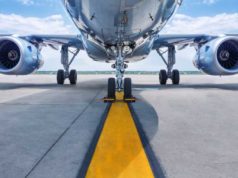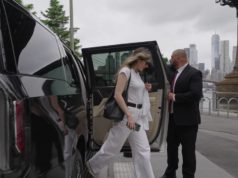“We have the utmost respect for Elaine Chao, an accomplished public servant and highly capable leader,” Adrian Durbin, a Lyft spokesman, told NBC News. “We congratulate her on the nomination and look forward to working with her on an array of transportation issues.”
Niki Christoff, head of federal affairs at Uber, said in an emailed statement that “Ms. Chao’s knowledge of transportation issues is extensive, and we look forward to working closely with her.”
Winning over Silicon Valley will be a tough battle for Trump, who during the election received $1 for every $60 that was donated to Hillary Clinton by people working in the tech sector. However, Chao may be a start when it comes to building that bridge.
Related: Elaine Chao’s Cabinet Nomination Brings Pride to Some in U.S. and Overseas
Chao, who served as Secretary of Labor under President George W. Bush and Deputy Secretary of Transportation under President George H.W. Bush, has been a staunch supporter of the so-called gig economy, where people don’t have a traditional 9 to 5 job and instead work whenever they want.
In a speech last year at the American Action Forum, Chao called the “digitally enabled, peer-to-peer economy” an “important safety net for many families during difficult times.”
“At a minimum, government policies must not stifle the innovation that has made this sector such an explosive driver of job growth and opportunity,” she said.
“Elaine Chao is a conservative by nature, and that would suggest she might prefer to see the drivers treated as contractors rather than employees,” Martin Wachs, distinguished professor emeritus in UCLA’s Department of Urban Planning, told NBC News.
Related: Uber Deal Shows Divide in Labor’s Drive for Role in Gig Economy
“She has experienced some of these labor issues and that will affect the positions that she takes,” he said.
If confirmed, Chao will be stepping into the role as the debate continues whether drivers for ride-hailing apps should remain independent contractors or classified as employees, entitling them to health insurance and vacation time.
Uber and Lyft have faced class action lawsuits from drivers over whether they’ve been misclassified and should be employees. Ongoing litigation against Uber in California and Massachusetts has been put on hold after a judge rejected a $100 million settlement Uber had agreed to, according to the class action lawsuit site.






